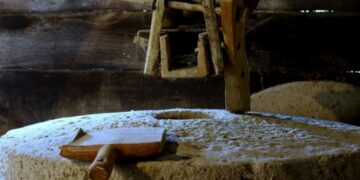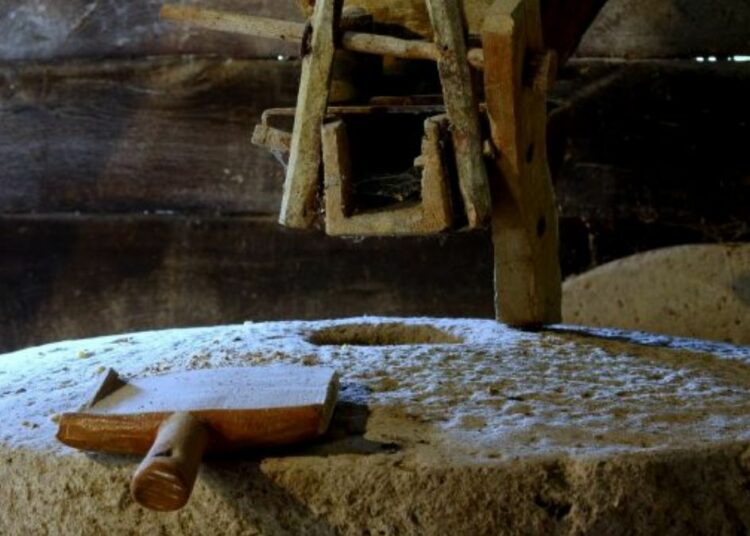Famous Serbian writer Branko Ćopić in his short story “The Mill on the Stream” states how his grandfather Rade confessed after his wife’s death to the mill in which he ground grain: “The mill, for example, for my grandfather was always like a small shrine to which he went, now and then, to receive flour from its generous hands for “our daily bread, give us today…” That good-natured gray-haired old man—a wizard who lives in a willow over the water, always awake—is ready at all times to listen to everyone’s plight. You can confide in him openly and without hesitation, as if to someone from your closest family. When my grandfather’s wife, Milica, died, the depressed old man found himself various jobs for a long time, all away from home, out of sight of people. He hid, in fact, his sadness, not to mention that it is little embarrassing for a serious man to grieve for a woman. Well, women can be found anywhere, right, it’s not like you can’t find another one. It was during those hellish days that my grandfather was most alone at our nearby mill. He sits like that on a hard sunlit field opposite a whitened stream, he sighs, and the sigh is quite, at the same time it merges with the industrious and cheerful hum of the mill and the playful wheel. Well, my dear, that’s how it is. The deceased woman, to be fair, was like this and like that, that’s what I know best. And she loved to drink, God bless her soul, once she almost set the house on fire. Well, I’m sorry again, I’m just telling you that. Goodbye. And again, a sigh that even the grandfather himself does not hear or is even aware of. Everything was absorbed and carried away by a tireless howl. The grinder comforts him as best he knows: he takes away the voice of sadness, silences it and deafens it. – Listen to me, old man, I’ll tell you… And so day after day: grandfather’s complaints are getting shorter and quieter, until finally they are reduced to mutterings and affirmative nodding of the head. The old man receives consolation and makes peace with life, with sadness, with his loneliness.”
This is what Branko Ćopić wrote about his grandfather and his respect for the mill as a temple, to which you can confess in your torments, because it grinds wheat into flour for our daily bread.
And I remember my grandfather, Radomir Lučić from Kulinovci near Čačak—how many times he said that there would be famine because people throw bread into dustbins in the city. Grandfather and grandmother did not allow even breadcrumbs to be trodden on the wooden pathos.
And my father ate oat bread, made from wholegrain flour, and unsalted nettle with it. When someone buys you a flatbread (rarely, so rarely), you hold a piece of bread in both hands, so you think there is bread in one hand and cheese in the other.
We forgot all that.
And we shouldn’t have forgotten, because who knows what kind of weather will come around, and who knows if there will be hunger like there used to be in the past.
So let’s honor bread. That respect will bring us back among the people.
Source: Pravda




















Discussion about this post